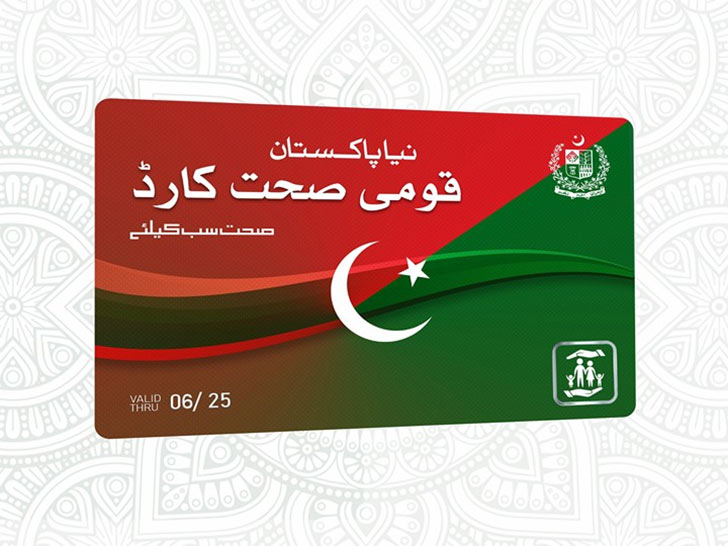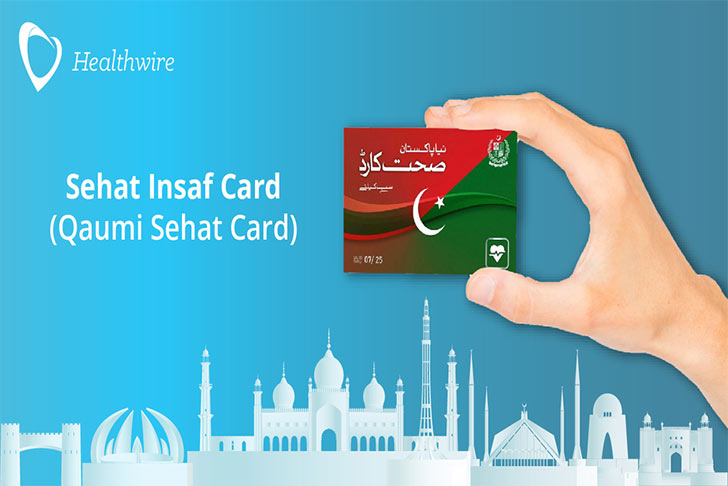One hundred million people worldwide are forced below the poverty line every year because of catastrophic healthcare expenses, according to WHO and World Bank. For developing nations like Pakistan, where most of the population lives in poverty and government spending on healthcare is well below the global standard, the threat of bankruptcy due to healthcare spending is always looming. Low-income households already bear 60pc of all health-related costs, so emergency expenditures can quickly become unaffordable. Per recent surveys, almost half the population cannot afford medical care. And the ongoing COVID-19 pandemic has immensely strained the health system, making the already bleak situation dire.

Having noted the worsening problem, the government of Pakistan has introduced the Qaumi Sehat Card Programme to address these issues. The Sehat Card initiative is primarily designed to safeguard the underprivileged population against the financial burdens of healthcare. It provides free access to quality medical attention through a full-range health insurance paid for by the government. The Qaumi Sehat Card is a tangible leap toward Universal Health Coverage (UHC) which Prime Minister Imran Khan considers a stepping stone toward a welfare state.
Beneficiaries of the Sehat Card can access free, cashless indoor healthcare services at any of the empanelled hospitals. The program constitutes entire households and all age groups. Once the eligible applicant has enrolled in the Qaumi Sehat Card scheme, the Insurance Company will cover all hospitalizations and pre-existing conditions without any caps on the family size. Pre and post-hospitalization expenses and medicine are also included. The recipients are entitled to two care packages: annual coverage of up to Rs. 60,000 per household and priority illness hospitalization of up to Rs. 400,000 per household per annum. Under certain circumstances, the coverage can be extended up to Rs. 1,000,000. The caps are renewed every year. But if the insurance limit is exceeded during treatment in the hospital, the patient will not be discharged. To provide this coverage, the government is paying premiums of Rs. 2800, per beneficiary. The budget allocations for the Qaumi Sehat Card have grown year on year since 2019.

Eligible candidates do not need a special document or card to avail financial health protection. The Qaumi Sehat Card doubles as the computerized national identity card (CNIC.) Empanelled hospitals only require the beneficiary's CNIC to grant cashless hospitalization and further treatment. Human intervention has been minimized since citizens can check their eligibility by sending their CNIC number to 8500. Families are identified in the National Socio-Economic and Benazir Income Support databases connected to NADRA. Other than the poor, the government is also considering marginalized groups. Disabled and transgender citizens are included by default, given they are registered in the NADRA database.
Indiscrimination is the hallmark of Universal Health Coverage. And the government has not entertained any prejudice or discrimination in the launch of this initiative. Any deserving citizen with a CNIC card and their family (or Form B in the case of underage individuals) can benefit from the programme, regardless of race, religion, employment status, civilian or public service. Family is defined as wife, husband, and unmarried children, and divorcees and widowers are also considered family.

Muhammad Arshad Qaim Khani, CEO of the Sahulat Program, notes that the Qaumi Sehat Card covers all treatments traditionally offered through hospitalization. Including but not limited to heart disease, cancer, neurological diseases, dialysis, diabetes, thalassemia, hepatitis, accidental injury, burn management, eye cataracts, and C-sections. Organ transplant surgeries were originally not offered, but the government is making efforts to include those treatments (kidney transplants are already covered, and a successful liver transplant has also been provided in KPK.) The only notable exclusions are dentistry treatments, cosmetic surgeries, and implants.
Over 700 public and private hospitals have been empanelled (the number is expected to increase to 1000 in the coming weeks.) 70% of these hospitals belong to the private sector, and the government has established lines of communication to keep track of the medicine and treatment data via the digital Pharmaco Vigilance system. Private hospitals are vetted and inspected before they are approved.
The service has been launched in up to 36 districts in Punjab (it will be available throughout Punjab by late March,) multiple divisions in Khyber Pakhtunkhwa, Azad Kashmir, and Islamabad. The extensive list of these hospitals can be found on the official website of the Punjab Health Initiative Management Company, on the official mobile app, or through inquiries made via the telephone helpline. Cardholders can also call the helpline to lodge formal complaints against the empanelled hospitals if they are unsatisfied with the promised treatment. Beneficiaries who are permanent residents of these locations can access cash-free, indoor healthcare at any of the listed hospitals. The Balochistan government has also shown keen interest in the healthcare initiative. So a rollout to districts in Balochistan is entirely possible. But the Sindh government has resisted the efforts of the federal government to introduce the programme. The Sindh cabinet decided to opt out of the Qaumi Sehat Card healthcare, citing unclear explanations. However, the federal government has managed to extend the programme to 112,000 families residing in the remote regions of Tharparkar in Sindh.

At least 30 million households, totaling 115 million individuals, are expected to be issued their Qaumi Sehat Cards. Furthermore, 23b has already been spent on insured treatments, and 98pc patients have expressed satisfaction with the Sehat Card service. In the future, middle-class households could also join the Sehat Card service on a co-pay basis.
Universal Health Coverage provided by the Qaumi Sehat Card programme will pave the way for healthcare without discrimination. Low-income households can avail the same standard of medical attention and treatment as the rich. And perhaps even more importantly, the initiative will free the citizens from the looming threat of extreme poverty that arises from unaffordable medical care. It is no small feat, especially considering even some developed, wealthy nations fail to offer Universal Health Coverage.





